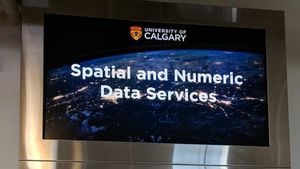Writing about scholarly method, Paul Courant discusses ‘information literacy’ and ‘scholarly literacy’.
Partly in response to these concerns, there has been much talk about the importance of developing “information literacy”. I will argue here that our most important audience is already information literate and then some. [3] Our interest should be in ensuring the production of something that we might call “scholarly literacy”, by which I mean the understanding of sources, methods, and their use that is at the heart of knowing what one knows and does not know. The problem is that the remarkable growth of information literacy has both enhanced our technical ability to produce scholarly literacy, by greatly increasing access to resources, while at the same time reducing the imperative to engage in sound scholarly practice by doing work that is “good enough.” The challenge that we face will not and should not be that of turning back the clock; our task is to take ubiquitous information literacy and exploit it as an asset for the development of scholarly literacy. (There would be a high payoff, by the way, to generating a phrase that is jazzier and more marketable than “scholarly literacy.”)
[3] As Stanley Wilder has noted, “Any educational philosophy is doomed to failure if it views students as information seekers in need of information-seeking training.” From Stanley Wilder, “Information literacy makes all the wrong assumptions,” The Chronicle of Higher Education (January 7, 2005): B13.
[Paul Courant. Scholarship, the wave of the future in the digital age. PDF In: The tower and the cloud. Richard N Katz, ed.]
When I read Wilder’s article a couple of years ago, I wrote about the ‘eat your spinach, it’s good for you’ attitude to information literacy that you occasionally come across, often coupled with a defensive attitude to Google.
I liked the discussion of scholarly literacy here … But the question remains … what is a “jazzier” name for ‘Scholarly literacy’ ….. ?



